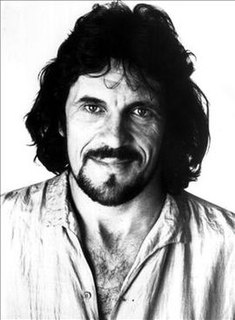A Quote by Selma Fraiberg
We have good reason to believe that memories of early childhood do not persist in consciousness because of the absence or fragmentary character of language covering this period. Words serve as fixatives for mental images. . . . Even at the end of the second year of life when word tags exist for a number of objects in the child's life, these words are discrete and do not yet bind together the parts of an experience or organize them in a way that can produce a coherent memory.
Quote Topics
Absence
Because
Believe
Bind
Character
Child
Childhood
Coherent
Consciousness
Covering
Discrete
Early
Early Childhood
End
Even
Exist
Experience
Good
Good Reason
Images
Language
Life
Memories
Memory
Mental
Mental Image
Number
Objects
Organize
Parts
Period
Persist
Produce
Reason
Second
Serve
Them
Together
Way
Word
Words
Year
Related Quotes
So many of my memories are generated by and organized around food: what I ate, what people cooked, what I cooked, what I ordered in a restaurant. My mental palate is also inextricably intertwined with the verbal part of my brain. Food, words, memories all twist together, so it was the obvious way to structure my life. Each memory of food opened up an entire scene for me, it was the key that unlocked everything.
When a child speaks of a past life memory, the effects ripple far. At the center is the child, who is directly healed and changed. The parents standing close by are rocked by the truth of the experience - a truth powerful enough to dislodge deeply entrenched beliefs. For observers removed from the actual event - even those just reading about it - reports of a child's past life memory can jostle the soul toward new understanding. Children's past life memories have the power to change lives.
Words outlive people, institutions, civilizations. Words spur images, associations, memories, inspirations and synapse pulsations. Words send off physical resonations of thought into the nethersphere. Words hurt, soothe, inspire, demean, demand, incite, pacify, teach, romance, pervert, unite, divide. Words be powerful.
The very term ['mental disease'] is nonsensical, a semantic mistake. The two words cannot go together except metaphorically; you can no more have a mental 'disease' than you can have a purple idea or a wise space". Similarly, there can no more be a "mental illness" than there can be a "moral illness." The words "mental" and "illness" do not go together logically. Mental "illness" does not exist, and neither does mental "health." These terms indicate only approval or disapproval of some aspect of a person's mentality (thinking, emotions, or behavior).
Therefore, the two processes, that of science and that of art, are not very different. Both science and art form in the course of the centuries a human language by which we can speak about the more remote parts of reality, and the coherent sets of concepts as well as the different styles of art are different words or groups of words in this language.
I think if a writer is not endeavoring to expand and alter consciousness in himself and in his readers, he is not doing much of anything. It is precisely words, word lines, lines of words and images, and associations connected with these word and image lines in the brain, that keep you in present time, right where you are sitting now.
In the speech sound wave, one word runs into the next seamlessly; there are no little silences between spoken words the way there are white spaces between written words. We simply hallucinate word boundaries when we reach the end of a stretch of sound that matches some entry in our mental dictionary.
If you have words and want to write music for them, the words hit you with a feeling which you can't really describe in words, and so what you do is to put music to them and in this way you make contact with the words, through the musical thing. It happens when two feelings come together and they do something together and they compliment each other.
I don't think there is any scientific evidence about the question of whether we think only in language or not. But introspection indicates pretty clearly that we don't think in language necessarily. We also think in visual images, we think in terms of situations and events, and so on, and many times we can't even express in words what the content of our thinking is. And even if we are able to express it in words, it is a common experience to say something and then to recognize that it is not what we meant, that it is something else.
The English language lacks the words 'to mourn an absence.' For the loss of a parent, grandparent, spouse, child or friend we have all manner of words and phrases, some helpful, some not. Still, we are conditioned to say something, even if it is only 'I am sorry for your loss.' But for an absence, for someone who was never there at all, we are wordless to capture that particular emptiness. For those who deeply want children and are denied them, those missing babies hover like silent, ephemeral shadows over their lives. Who can describe the feel of a tiny hand that is never held?



































